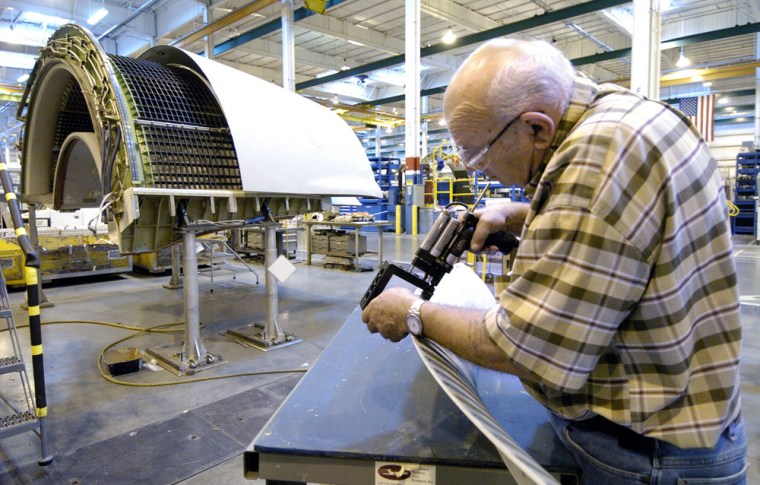San Jose and Stockton, Calif., are just 78 miles from each other, yet they’re worlds apart in high-tech expertise.
San Jose — epicenter of internationally renowned Silicon Valley — is the nation’s most technologically adept metropolitan area, according to a new bizjournals study of 100 U.S. markets. Stockton ranks dead last.
Bizjournals created a five-part formula to identify metros blessed with the highest concentrations of high-tech companies, technology-oriented jobs, and workers with advanced degrees.
San Jose stands out as the clear leader — no real surprise, given its preeminence in the fields of computer and semiconductor manufacturing.
These are the key factors in its rise to first place:
- Nearly 12 percent of San Jose’s private-sector businesses are classified as high-technology, the biggest concentration in America. The precise ratio in San Jose is 117.1 high-tech companies per 1,000 private-sector firms, nearly triple the U.S. average of 40.2 per 1,000.
- Employment trends are even more lopsided. San Jose has 182.5 high-tech jobs for every 1,000 private-sector jobs. That’s 47 percent higher than the ratio for any other market — and 329 percent above the average for the entire study group.
- One-sixth of all adults in the San Jose area, 16.9 percent, hold master’s or doctoral degrees. Washington is the only market with a higher percentage.
Washington, in fact, ranks second in bizjournals’ overall high-tech standings, followed by Boston, San Francisco-Oakland and Seattle. Each of these areas has more than 160,000 high-tech jobs, and at least 10 percent of all local workers hold advanced degrees.
Bizjournals used raw data from two recent reports by the U.S. Census Bureau to analyze the high-tech capabilities of every market with more than 500,000 residents.
The study focused on so-called Level I high-tech industries, a group defined by the U.S. Bureau of Labor Statistics as businesses where at least a quarter of all employees are directly involved in technology-oriented work. That includes the aerospace, computer, control-instruments, pharmaceutical and semiconductor industries and scientific research-and-development services.
This definition of high-tech jobs is more restrictive than others used by some private analysts, yet it still encompasses more than 4 million positions in the 100 markets.
The following is a quick rundown of the 10 metros whose high-tech sectors earned the highest ratings:
1. San Jose — Victory was never in doubt. San Jose was the only metro to rank among the top 10 markets in each of the study’s five categories.
2. Washington — Don’t be surprised. The federal government is no longer the Washington area’s sole economic support. Suburban Fairfax County, Va., has become a particularly strong high-tech hub.
3. Boston — The Boston metro rose to high-tech prominence in the 1980s. Remember all the stories about the Route 128 corridor? It continues to benefit from a well-educated workforce.
4. San Francisco-Oakland — It’s hard to tell where the San Jose area ends and San Francisco-Oakland begins. The two metros have 340,000 high-tech jobs between them.
5. Seattle — Microsoft is the linchpin of Seattle’s technology sector, but it’s certainly not the only local success story. The market has more than 5,000 high-tech employers.
6. San Diego — This is the third California entry in the top 10, more than any other state. Only five metros surpass San Diego’s ratio of 91.2 high-tech jobs per 1,000 private-sector jobs.
7. Austin — The University of Texas and the state government both call Austin home, giving a hefty boost to the area’s booming technology sector.
8. Palm Bay-Melbourne, Fla. — Cape Canaveral is a short drive up the Atlantic coast, making Palm Bay-Melbourne an obvious location for firms specializing in aerospace and related fields.
9. Wichita, Kan. — It may not enjoy the same level of publicity as the others, but Wichita is a certified high-tech center, thanks to its concentration of aeronautics companies.
10. Raleigh — Raleigh is the key vertex of North Carolina’s Research Triangle, with Durham and Chapel Hill at the other corners. Only San Jose, Washington and Austin have larger ratios of high-tech to private-sector businesses.
Last in the overall rankings is Stockton, an inland California metro that is less than two hours by car from San Jose.
Stockton has just 1,540 high-tech jobs, which translates to 8.6 per 1,000 private-sector positions. Both statistics are the weakest among the nation’s 100 major markets. Only 3.3 percent of Stockton’s adults hold advanced degrees, which is less than half the study group’s average of 8.4 percent.
Also in the bottom five in bizjournals’ high-tech rankings are McAllen-Edinburg, Texas; Modesto, Calif.; Youngstown, Ohio; and Lakeland, Fla.
